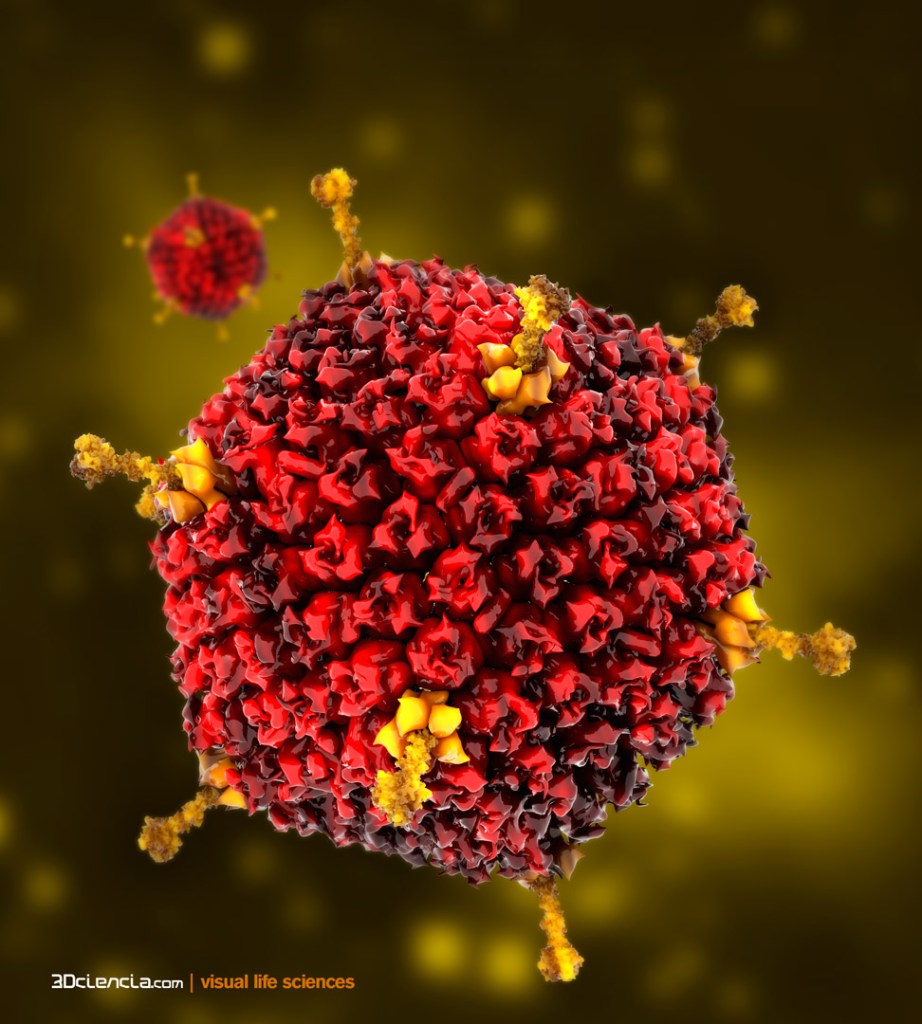
I received a lot of really good feedback about the Russian vaccine post with several people raising issues about the Russian vaccine and the vaccines in general. While I have written about COVID-19 vaccines before, I thought this was an important enough topic to dedicate another post.
-The Russian vaccine uses live human adenovirus. Has this been used before in other approved vaccines?
Like many of the new COVID-19 vaccines, there has been no successful human vaccine based on adenovirus. Part of the problem has been that humans have immunity to adenovirus that causes them to clear the virus before they make an immune response to the new antigen. Because of this, the Oxford vaccine uses chimpanzee adenovirus which humans do not have immunity against. Despite this, it failed in clinical trials to protect against malaria.
Human adenovirus 5 causes severe reactions because 95% of humans have immunity to it by age 21. Therefore, you are injecting a virus into someone who is immune. Large doses of adenovirus can actually cause a person to develop a “cytokine storm” type of inflammatory reaction. A young man was killed 20 years ago in a gene therapy trial at UPenn after being injected with adenovirus; however, that injection was into a vein (as compared to a muscle for a vaccine) and the amount of virus was much higher than what was used in the vaccine.
-Why not an attenuated virus (e.g. non-replicative) virus?
A non-replicative virus is one that cannot reproduce itself. If you inject the virus, it can induce immunity, but cannot cause infection. Several non-replicative viruses have been tested as vaccines because they would be theoretically safer than regular viruses. There are three problems: the genetic engineering of the virus is much more complex and difficult to do. The virus is harder to produce since it cannot grow itself. Non-replicative viruses tend to induce less of an immune response. Also, regulators worry that other viruses in the body could cause the virus to become active again.
-Why would the Russians, UK, and Chinese pick adenovirus as a vector?
The major reason that all these investigators have chosen adenovirus as a vector is because it is easy to genetically engineer to express COVID-19 proteins. It also grows very rapidly in tissue culture so you could produce this virus very easily and in large quantities. As I mentioned before, however, it is not a proven method to make a human vaccine.
-Are there any specific problems trying to vaccinate an older adult or elderly population?
It turns out that elderly people are more difficult to vaccinate than young people. Their immune systems have fewer cells that can respond to a vaccine and tend to make less intense immune responses to vaccines. Several vaccines such as the flu vaccine are now being formulated specifically in higher doses to immunize the elderly. Therefore, unless elderly individuals are being tested in the clinical trials for these vaccines, there is no guarantee that the vaccine will actually work in the elderly who need it the most.
-What is known about vaccine and adenovirus toxicity in the elderly?
In general, vaccine toxicity can be more severe in elderly people. They tend to have inflammatory reactions that they tolerate less well especially with things like fever. They also have a more difficult time controlling viral infections which is best demonstrated by the fact that shingles occurs in elderly people because they lose control over the chicken pox virus. Therefore, I would be concerned that elderly people might have a more severe adverse reaction to alive, adenoviral vaccine.
-Which of the potential vaccines might be most appropriate for the elderly?
It is not entirely clear which of the potential vaccines might be most appropriate and safe for the elderly. My preference might be for recombinant protein vaccine, like the one being produced by Novavax , or RNA vaccines that Moderna and Novartis are producing. While these vaccines are causing significant inflammation, they contain no live virus, which could cause ongoing problems in an elderly person or someone with damaged immunity. First, however, any vaccine has to be shown to work in the elderly.
-Brazil and some other countries want the Russian vaccine. Will it be available in the US?
The one thing that is most assured is that the Russian vaccine will not be available in the United States. There is no plan in Russia to do the large-scale clinical trials that the FDA would require to approve this vaccine. The only possibility is that review of experience in other countries with the vaccine might provide enough data that the FDA would one day approve the vaccine. However, that seems like something that would be quite awhile away.
Excellent and very thoughtful follow up Dr Baker. Thank you
LikeLiked by 1 person